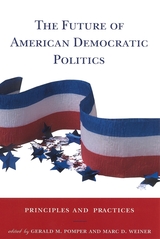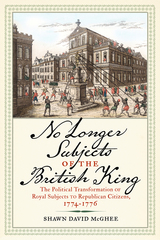
Presenting case studies from sixteen countries on five continents, The Catholic Church and the Nation-State paints a rich portrait of a complex and paradoxical institution whose political role has varied historically and geographically. In this integrated and synthetic collection of essays, outstanding scholars from the United States and abroad examine religious, diplomatic, and political actions—both admirable and regrettable—that shape our world. Kenneth R. Himes sets the context of the book by brilliantly describing the political influence of the church in the post-Vatican II era. There are many recent instances, the contributors assert, where the Church has acted as both a moral authority and a self-interested institution: in the United States it maintained unpopular moral positions on issues such as contraception and sexuality, yet at the same time it sought to cover up its own abuses; it was complicit in genocide in Rwanda but played an important role in ending the horrific civil war in Angola; and it has alternately embraced and suppressed nationalism by acting as the voice of resistance against communism in Poland, whereas in Chile it once supported opposition to Pinochet but now aligns with rightist parties.
With an in-depth exploration of the five primary challenges facing the Church—theology and politics, secularization, the transition from serving as a nationalist voice of opposition, questions of justice, and accommodation to sometimes hostile civil authorities—this book will be of interest to scholars and students in religion and politics as well as Catholic Church clergy and laity. By demonstrating how national churches vary considerably in the emphasis of their teachings and in the scope and nature of their political involvement, the analyses presented in this volume engender a deeper understanding of the role of the Roman Catholic Church in the world.

In this book, fifteen major scholars assess the current state of American democracy, offering a spirited dialogue on the future of democratic politics. Contributors focus on three principles fundamental to democracyequality, liberty, and participation. They examine these principles within the context of the basic institutions of American democracy: Congress and the state legislatures, the president, political parties, interest groups, and the Supreme Court. They raise questions regarding the checks and balances among formal governmental institutions as well as the role of political parties and interest groups.
Topics discussed include the incomplete mobilization of the electorate, the debates over campaign finance reform and term limits, the Supreme Courts activist role in the Florida recount, the dangers of teledemocracy and state initiatives, the separation of political participation from residential location, "identity politics," the clash of "negative" and "positive" liberty, and the prospects for personal freedom in an era of terrorist threats.
This timely collection covers the issues relevant to the future of American democracy today not only for lawmakers, students, and historians, but for any concerned citizen.

In this wide-ranging assessment of democracy in America today, fifteen respected scholars of American politics chart the strengths and weaknesses of the nation’s democratic mechanisms and outline the challenges that lie ahead. They focus not on specific policies or elections but on the quality of American political life, the representativeness of its governing institutions, and the issues of racial and economic equity.
The contributors cover a broad spectrum of the American political process. Topics include the extent and nature of political participation, the relevance of political parties, political fundraising and its policy consequences, demographic change and its likely effect on the national political agenda, and the future of racial politics. Others explore how representative Congress really is today, how the market economy affects public policy, the use of impeachment as a political weapon, and the degree of corporate influence on the political process. A final chapter explores the circumstances likely to shape policy agendas over the course of the twenty-first century.
Taken together, these essays provide a clear picture of political evolution during the past fifty years and discuss possible problems and issues of the future. Written for advanced undergraduate and graduate students, the book is a thoughtful, well-documented, critical analysis of contemporary American democracy.
READERS
Browse our collection.
PUBLISHERS
See BiblioVault's publisher services.
STUDENT SERVICES
Files for college accessibility offices.
UChicago Accessibility Resources
home | accessibility | search | about | contact us
BiblioVault ® 2001 - 2024
The University of Chicago Press









